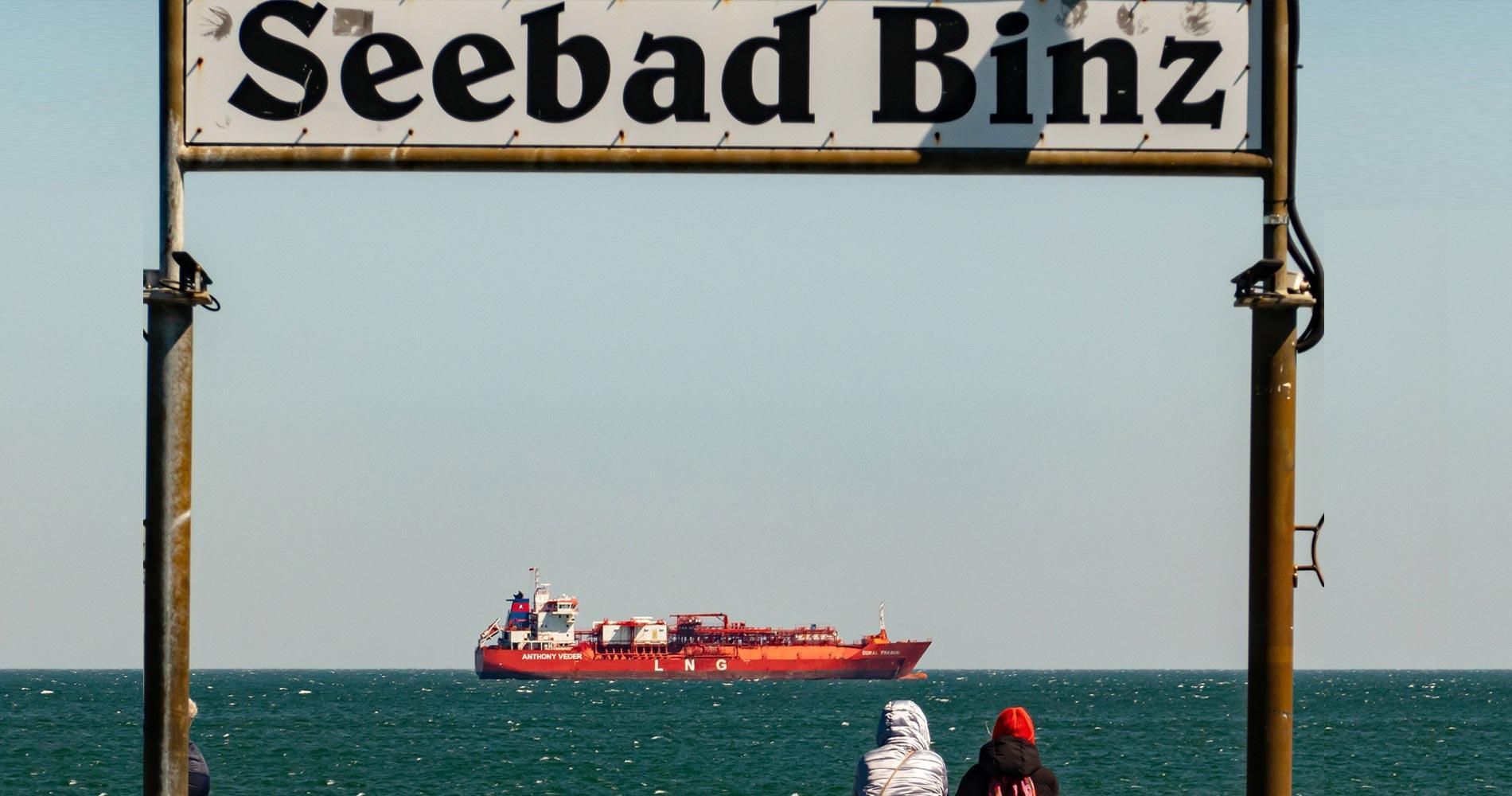The German Federal Government’s recent decision to build a liquefied natural gas (LNG) import terminal on the picturesque island of Rügen has ignited a heated dispute. The planned construction in Sassnitz-Mukran has raised concerns among tourism companies, conservationists, and even economic experts who deem it unnecessary. Following widespread public outrage, including a petition signed by over 61 000 people, the government appeared to have listened to the opposition’s concerns but later reversed its position. This turn of events has deepened the divide between supporters and opponents of the controversial project.
Murat Gibadyuko, 14 June 2023
German version | Russian version
Rügen, renowned for its Jasmund National Park, chalk cliffs, and pristine sandy beaches, has long been a sought-after tourist destination cherished for its untouched natural beauty. However, construction of the proposed liquefied natural gas (LNG) terminal in Sassnitz-Mukran threatens to disrupt the island’s serene landscape. Ships from around the world would transport LNG to Rügen, a prospect that has tourism officials and residents worried about transforming their beloved island into an industrial hub. Kai Gardeja, head of tourism in Binz, expressed her concerns over the potential decline in tourist numbers: “All tourists will see and hear it. We’re becoming an industrial area.”
The urgency for new LNG capacities in Germany arises from the need to compensate for dwindling gas deliveries from Russia. In response to the disruption of natural gas supply chains, the German Federal Government has been actively pushing the development of its own import infrastructure for LNG. To expedite this process, on 1 June 2022 an act was passed aiming to accelerate the use of LNG and reduce dependence on Russian gas. The act grants provisions for streamlined procurement procedures and waives certain environmental impact assessments to facilitate the construction of necessary import infrastructure, including the proposed terminal on Rügen.
The ongoing conflict in Ukraine has further fueled Germany’s drive to diversify its gas supply away from Russia, making the development of its own LNG import infrastructure a top priority. The planned LNG terminal in Rügen is intended to be connected to the gas pipeline network in Lubmin, Western Pomerania, where multiple pipelines from the German-Russian Nord Stream 1 converge. This infrastructure would not only fulfill Germany’s gas needs but also provide import opportunities for neighboring countries in Central and Eastern Europe that previously relied heavily on Russian gas.
While Rügen is set to become one of the temporary LNG import locations, hosting floating terminals known as Floating Storage and Regasification Units (FSRUs), the local community and regional authorities have expressed strong opposition to the plans. Hoteliers, entrepreneurs, residents, and conservationists fear detrimental consequences for the environment and the vital tourism industry, which forms the backbone of the island’s economy. Their concerns have prompted a series of demonstrations, opinion polls, and a successful Bundestag petition that gained over 61 000 signatures. The petition specifically demands the exclusion of the LNG terminals on Rügen from the LNG Acceleration Act, which would slow down the approval process.
NGOs and researchers have slammed the government for pushing for “massively oversized” import capacity, citing an expected drop in gas demand and significant capacity in neighboring countries. Robert Habeck, Federal Minister for Economic Affairs and Climate Action, defended the planned construction of an LNG terminal on the island, denying allegations that excess capacity would be built up. According to Habeck, a “safety buffer” is required to ensure a stable German and European supply of gas.
Initially, it appeared that the German government had taken notice of the opposition’s concerns, leading to the postponement of the LNG terminal’s construction on Rügen. The government cited uncertainties regarding the location and construction as the basis for its decision. However, the subsequent reversal of this postponement has created further discord and frustration among opponents of the project. The sudden shift in the government’s position has deepened the divide between those advocating for the new LNG capacities and those concerned about the potential environmental and economic consequences.
The resistance to the German government’s plans has not been limited to local residents. German Environmental Aid (Deutsche Umwelthilfe, DUH), which has been opposing the construction of the LNG terminal for months, has decided to take legal action and filed a lawsuit against the project. The lawsuit specifically refers to the approval of a 38-kilometer-long connecting line from the mainland coastal town of Lubmin to Rügen, which poses a great threat to marine ecosystems.
As the debate continues, the fate of the disputed LNG terminal hangs in the balance. The German government’s decision to pursue the construction despite public backlash and the petition highlights the challenges of balancing energy needs, economic interests, and environmental concerns. The ongoing dispute about Rügen is a small example of the larger global debate on the future of energy and the delicate balance between progress and preservation.







